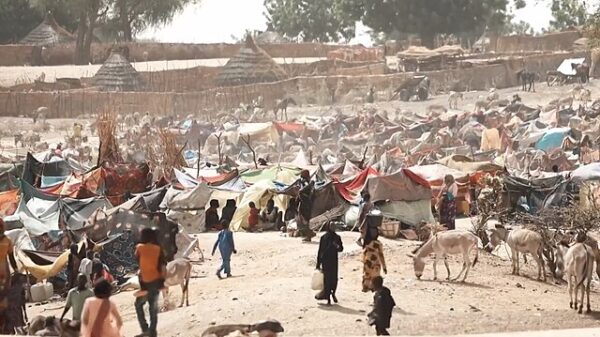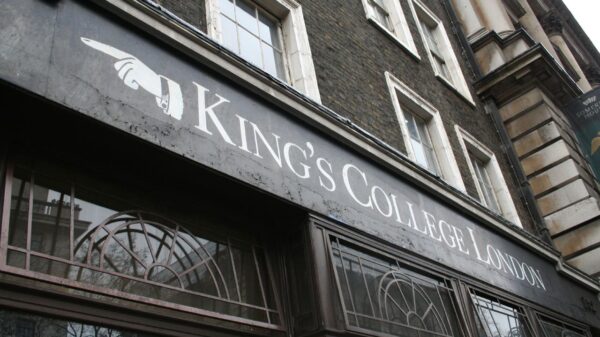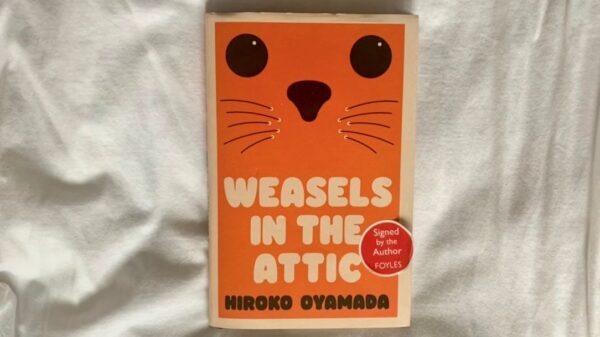Roar writer Allegra Campbell Boreham on the FutureBook Conference, an event hosted by The Bookseller exploring the future of the book publishing industry, and what this means for students looking to enter the industry.
How long do you leave between finishing one book and starting the next? Do you let yourself sit in that moment of uncertainty? Or in the silence of no longer being narrated by narrative? Do you creep downstairs in the early hours of the morning to start a new book after finishing the last one?
This is how Molly Flatt begins the first keynote of the FutureBook Conference. Through a series of talks, panels and interviews, FutureBook brings the brightest voices of the book publishing industry to an in-person live event of 400 delegates, as well as streaming online.
Molly Flatt’s opening keynote is an open-armed welcome to new ideas and new voices – and ultimately, a new generation of publishers, setting the tone of the whole event.
The keynote speakers that followed continue with this energy. Mark Maslin presents a call to arms on the future of publishing in relation to the climate crisis, calling for a new type of book. Nelle Andrew speaks of the epidemic of burn-out in the industry, noting the difficulty for authors in particular through the pandemic.
While commenting on the progress that the industry has made in terms of diversifying its voices, Nelle Andrew expresses the importance for ancestral pain to not be a trend for the publishing magpie to “collectâ€. Her plea to publish responsibility and creativity – and to look at the long-term careers of writers rather than trends – received a passionate round of applause from the audience.
This issue of under-representation is also tackled in a discussion with Roxanne Gay and Elizabeth Uviebinené, who both challenge the notion that an under-represented writer must write only to voice their experiences of suffering. Roxanne Gay encapsulates the entire discussion in her claim that she would be happy when a Black woman can write a book on butterflies.
The panel “Break Out: New voices, tomorrow’s brands” was made up of five inspiring women, who each vocalise the importance of equal opportunities in order to diversify and discover new voices. In this discussion, Joelle shares her journey from geologist to the world of publishing. As a commissioning editor, one cannot only exist within the sphere of publishing, there is also a need to have a foot within the ‘real world’, in order to feel and anticipate the trends of readers. Joelle’s ‘outside’ knowledge of geology – her ability to exist both within and outside of the sphere of publishing, in order to feel and anticipate the trends of readers – combined with science-based detail orientation is part of what has enabled her to excel as an editor.
The highlight of the morning is an interview with Crystal Mahey-Morgan. Having left Penguin Random House to begin her own company, OWN IT!, Crystal Mahey-Morgan created a space in the industry for what was being neglected, a space for under-represented authors to thrive. Part publishing house and part agency, OWN IT! is not only rethinking the publishing industry but reshaping it and placing under-represented voices at the forefront, with 50/50 profit shares for authors. Crystal Mahey-Morgan is an example of this next step being reached for in that first keynote, and this is a masterclass on how to execute it.
This dynamic between the prevalence of inequalities and the incredible work being done by certain individuals to combat this, proliferates throughout the afternoon sessions. Kate Mosse, author and founder of The Women’s Prize for Fiction, speaks of the criticism and difficulty faced during the conception and early years of the prize. Now, one of the largest prizes, The Women’s Prize for Fiction’s journey to recognition is a tale of successfully challenging and fighting against inequality.
In this same session Sunny Singh, author and co-founder of the Jhalak Prize, shares some of the racist backlash faced against the conception of the Jhalak prize. This acts as a reminder that the work undertaken to fight these inequalities is still in very early iterations, and there is still a lot further that the industry must go.
The afternoon continues with discussions expanding on Mark Maslin’s keynote on the climate crisis. The panel “Hearts and Minds: Our role in engaging readers” explores the different roles within the industry in combatting the climate crisis, from the author’s transformative powers of storytelling, to the publisher’s choices about the sustainability of paper and ink and the roles of booksellers and libraries in getting these books into the hands of readers.
The day concludes with a keynote by June Sarpong, which eloquently ties together the threads of the day’s discussions into a simple demand for diversity. This leads neatly into the prize-giving, which presents an array of exemplars of positive change. To name a few, the Lit in Colour campaign is fighting the lack of diversity in school curriculums – only 0.7% of students study a book from a person of colour at GCSE and the Working Class Writer’s Festival had its first event, of which a third of attendees were those who had not attended a literary event before.
This is an industry hungry for change. From the sessions I had the pleasure of attending, I truly feel that creativity is not only present in the industry through its backbone of storytelling, but that it runs through every sinew. There is a demand for it to be in every fibre as it is only through creativity, through innovation, that the industry can grow and change and address the pressing issues of under-representation and sustainability.
It is within this potentiality for growth and change, that there is space for a new generation of publishers and of writers; and it is with this sense of being between narratives, to take inspiration again from the keynote by Molly Flatt, that we, as students, will enter this industry.















